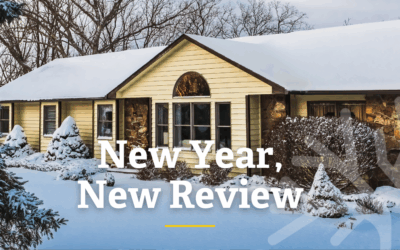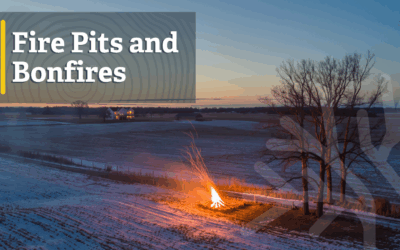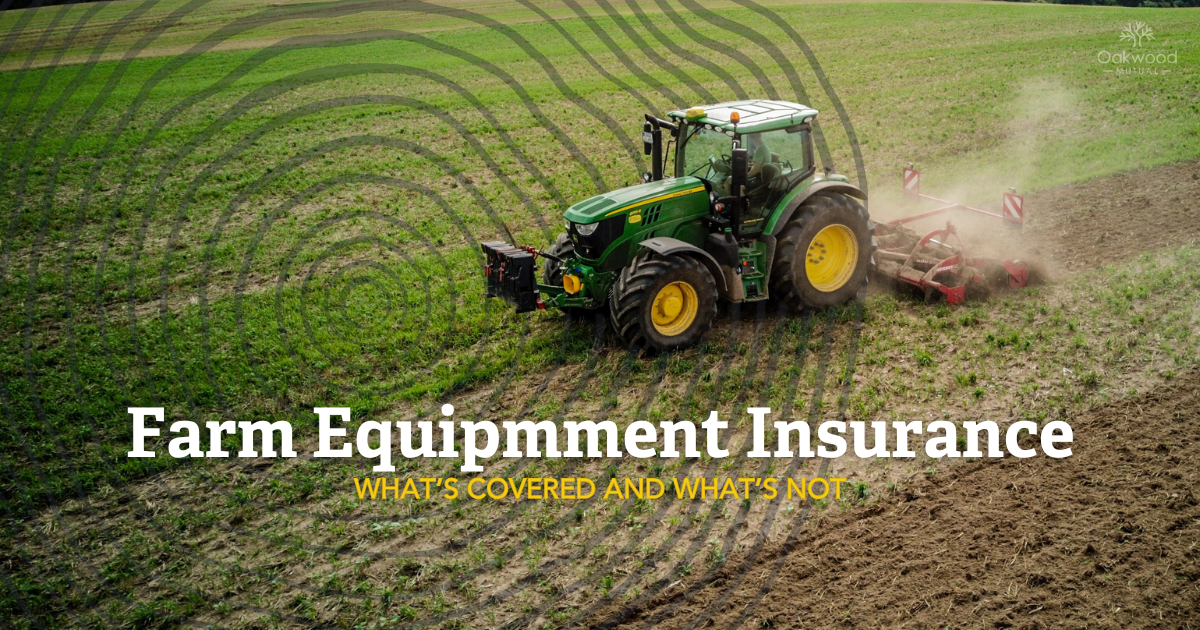
Running a successful farm means making big investments. In land, livestock, and especially equipment. Tractors, combines, plows, sprayers, and utility vehicles are not only expensive, but they’re also essential to daily operations. One breakdown or loss can set your entire operation back days or even weeks, and the cost to repair or replace equipment is rarely minor. That’s why farm equipment insurance matters. But many farm owners are surprised to learn that not all equipment is covered by default in a standard farm insurance policy. Knowing what’s included, what’s not, and how to tailor your policy is critical to protecting your investment—and your livelihood.
What Counts as Farm Equipment?
In the world of insurance, “farm equipment” generally refers to machines and tools used to operate and maintain a working farm. This can include:
- Tractors
- Combines
- Hay balers
- Cultivators and plows
- Planters and sprayers
- Harvesting equipment
- ATVs and UTVs used for work
- Irrigation systems
- Wagons and trailers
Smaller tools such as chainsaws, portable generators, and handheld sprayers may also be included under certain policies. However, the value, age, and use of the equipment may affect whether it qualifies for coverage and under which section of the policy it falls.
If you’re unsure whether a specific item qualifies as “farm equipment” under your policy, your best first step is to check with your insurance agent. At Oakwood Mutual, our independent agents can help review your current inventory and determine what’s covered—and what needs to be added.
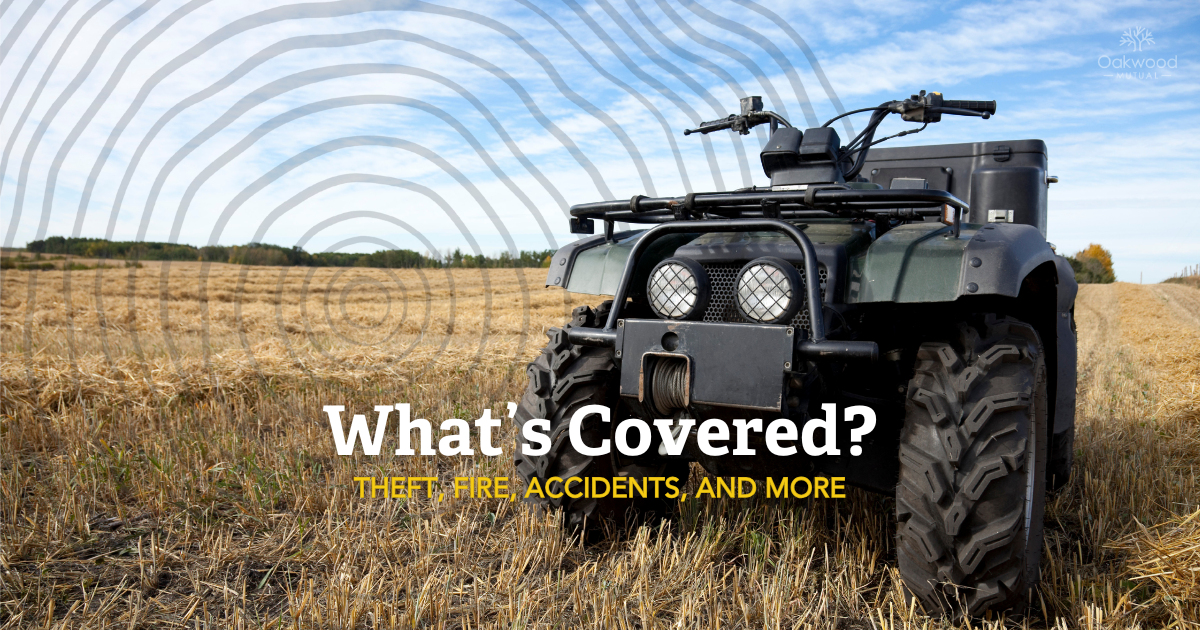
What’s Covered: Theft, Fire, Accidents, and More
A well-structured farm insurance policy should include multiple types of coverage designed to protect your equipment against a variety of risks. These typically include:
Theft and Vandalism
Farm equipment theft is a growing concern, especially in rural areas where storage facilities may be less secure or located far from the main residence. Standard policies often cover theft if the equipment is stored in a locked structure, but outdoor storage or remote locations may require additional protection.
Fire and Natural Disasters
If your equipment is damaged or destroyed in a fire, lightning strike, or tornado, most policies provide coverage for repair or replacement (up to the limits specified in your policy). Coverage may also include losses due to smoke damage or falling objects like trees.
Accidental Damage
Many policies cover unintentional damage to equipment caused by overturning, collisions, or operator error. For example, if a combine tips over while harvesting or a tractor hits a fence and is damaged, these may be insurable events.
Transport-Related Incidents
If you’re transporting your equipment to another property or field and it’s damaged en route, you may be covered—especially if your policy includes in-transit protection.
Optional Coverage for Breakdown
Mechanical breakdown isn’t always included in a standard farm policy, but some insurers offer it as an endorsement. This can be a smart investment for expensive equipment that’s essential to your daily operations.
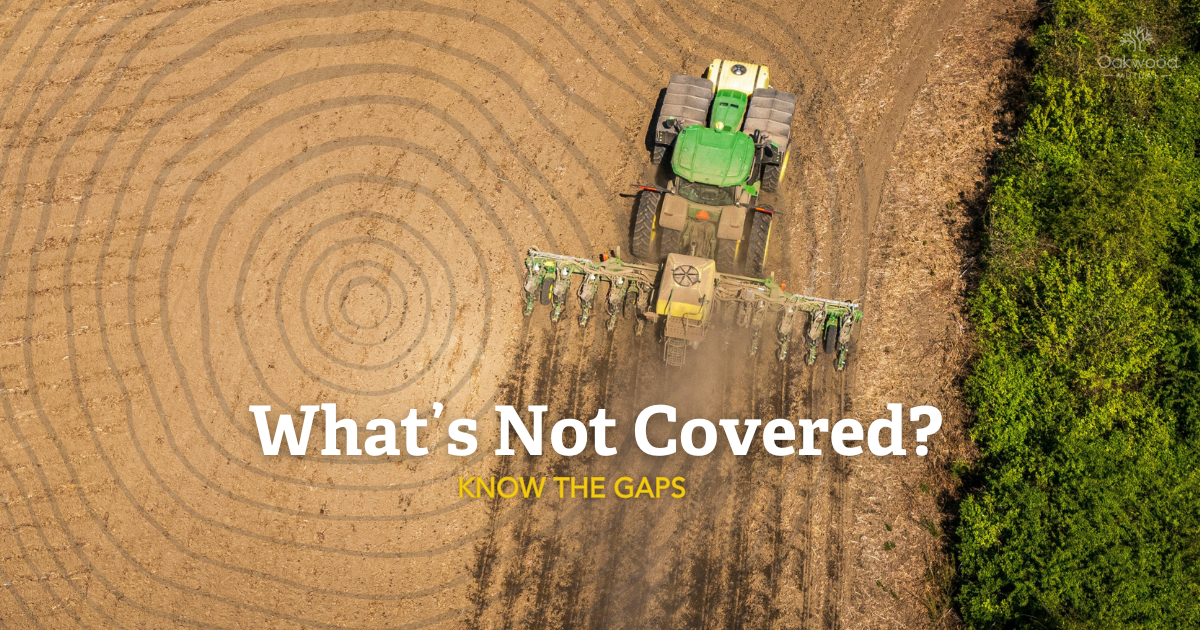
What’s Not Covered: Know the Gaps
Understanding the limitations of your coverage is just as important as knowing what’s included. Common exclusions or gaps in farm equipment insurance include:
Wear and Tear
Normal aging and maintenance issues are not covered by insurance. If your tractor breaks down due to years of use and lack of upkeep, you’re responsible for repairs.
Manufacturer Defects
Equipment still under warranty from the manufacturer is not usually covered under farm insurance. Warranty claims must go through the equipment provider.
Improper Use
If equipment is used outside its intended purpose (such as using a tractor for personal recreational use) and is damaged, your claim may be denied.
Unlisted Equipment
Any piece of equipment that is not itemized or explicitly included in your policy may not be protected. For high-value or specialized machines, it’s important to schedule them individually to guarantee coverage.
Standard vs. Specialized Coverage
Most farm owners carry a general farm policy that includes basic property, liability, and equipment protection. But as your farm grows and evolves, so do your risks—and your policy should reflect that.
Standard equipment coverage often includes basic protection against fire, theft, and accidents but may limit claims based on actual cash value (ACV). This means your reimbursement is based on the depreciated value of the equipment.
Specialized or scheduled coverage allows you to list specific pieces of equipment individually, including make, model, serial number, and current replacement cost. This can provide better protection by ensuring you’re reimbursed for the actual replacement value (not the depreciated one), and can also include additional endorsements such as:
- Rental reimbursement while your equipment is being repaired
- Replacement cost coverage
- Increased limits for off-property use
For farmers who rely on high-value or specialized equipment, this tailored coverage can be the difference between a quick recovery and a major financial setback.
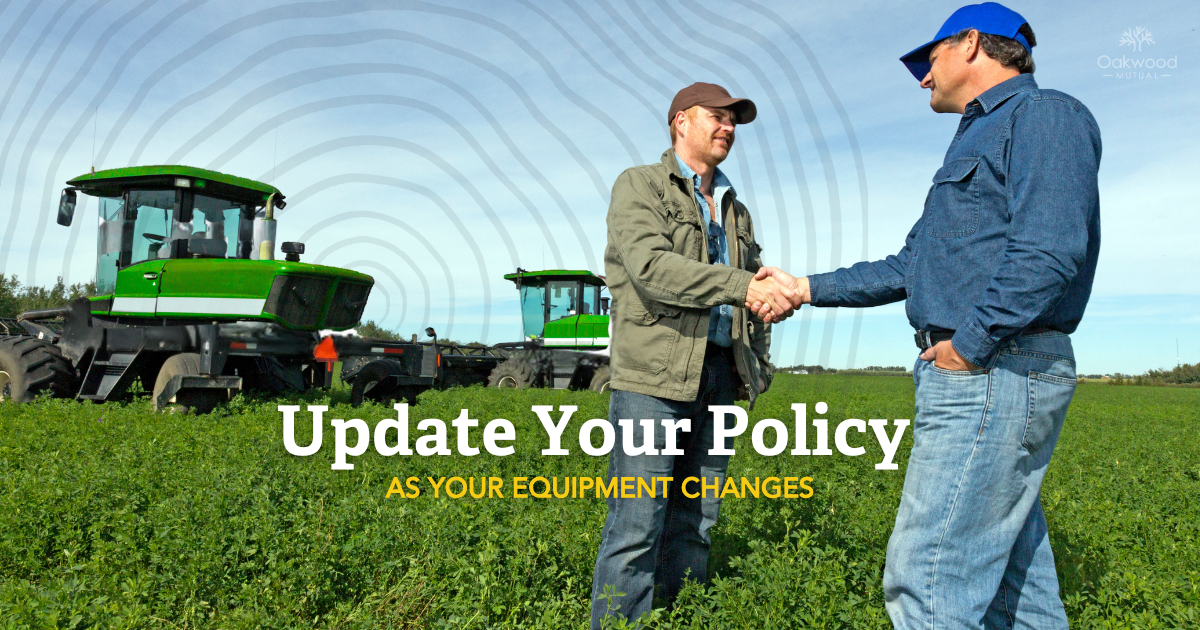
Update Your Policy as Your Equipment Changes
Your farm changes from year to year. New equipment is added, older machines are sold, and sometimes tools are moved offsite or repurposed. If your farm equipment insurance policy isn’t updated regularly, you may be left with coverage that no longer reflects the reality of your operation.
Here are a few times to check in with your agent:
- After purchasing new equipment or upgrading existing machinery
- When leasing or borrowing equipment
- If equipment is moved to another location or used off-property
- During annual policy reviews
- After changes in crop production or farming practices
Oakwood Mutual agents can help review your full inventory and suggest updates to your policy to reflect your current assets and needs. Don’t wait until after a loss to find out something wasn’t properly covered.
The Oakwood Difference
At Oakwood Mutual, we specialize in protecting rural Indiana. We understand the value your equipment holds—not just in dollars, but in the role it plays in your farm’s success. Our independent agents live and work in the same communities as our policyholders and provide trusted, personalized advice on farm insurance that fits your unique needs.
From customizing your policy to making sure your machinery is properly valued and listed, we’re here to help you protect your livelihood.
Don’t leave your equipment’s protection to chance. Talk to your local Oakwood Mutual agent today to review your farm policy and ensure your machinery is fully covered in case of theft, fire, accident, or breakdown.
